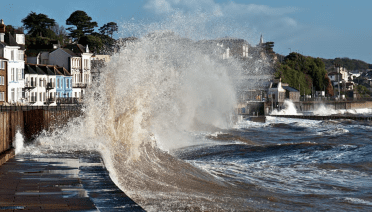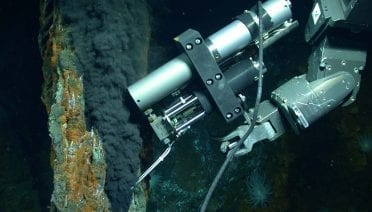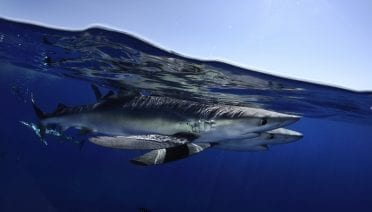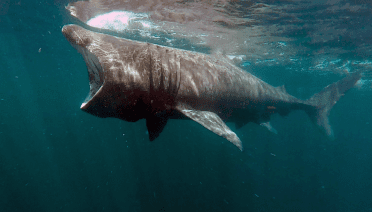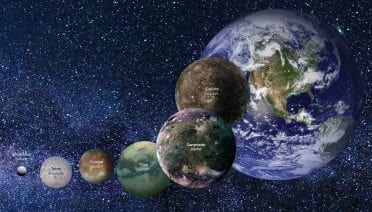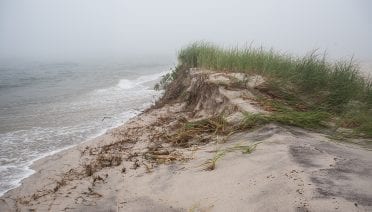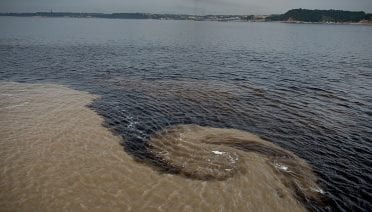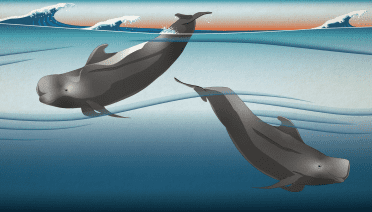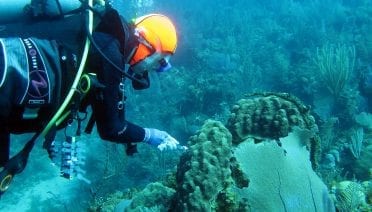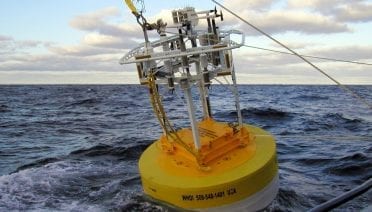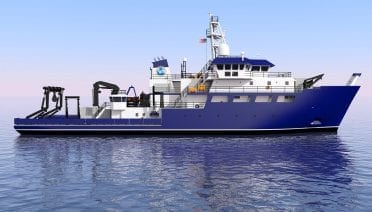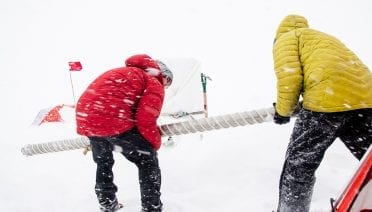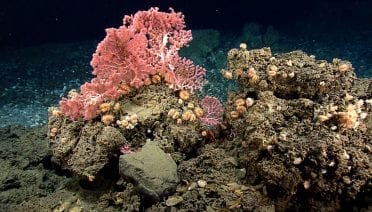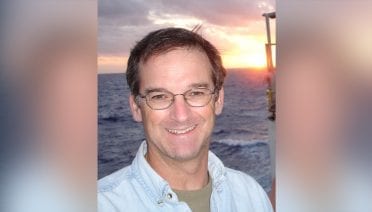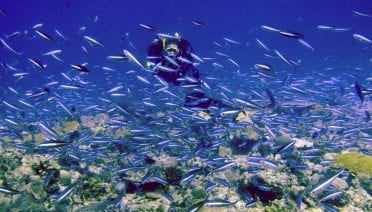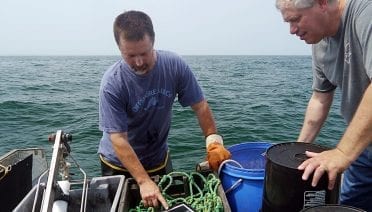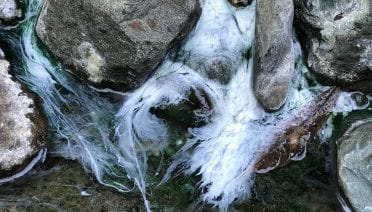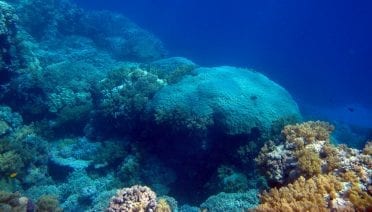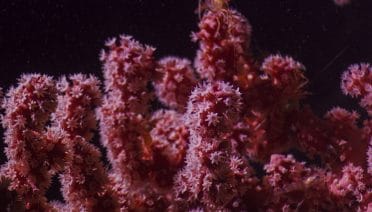Press Room
Sea levels in many areas across the global ocean are rising. Since the turn of the 20th century, the seas have risen between six and eight inches globally.
New research provides evidence of the formation and abundance of abiotic methane—methane formed by chemical reactions that don’t involve organic matter—on Earth and shows how the gases could have a similar origin on other planets and moons, even those no longer home to liquid water.
Blue sharks use large, swirling ocean currents, known as eddies, to fast-track their way down to feed in the ocean twilight zone—a layer of the ocean between 200 and 1000 meters deep containing the largest fish biomass on Earth, according to new research by the Woods Hole Oceanographic Institution (WHOI) and the Applied Physics Lab at the University of Washington (UW).
An autonomous underwater vehicle (AUV) known as the REMUS SharkCam has been used in the UK for the first time to observe the behaviour of basking sharks in the Inner Hebrides, off the west coast of Scotland.
Agency funds five-year effort to understand the potential for life in outer solar system and establishes a new Network for Ocean Worlds The National Aeronautics and Space Administration (NASA) will invest in a major new research program headquartered at the…
A new study by the Woods Hole Oceanographic Institution (WHOI) clarifies what influence major currents in the North Atlantic have on sea level along the northeastern United States. The study, published June 13 in the journal Geophysical Research Letters, examined both the strength of the Atlantic Meridional Overturning Circulation (AMOC)—a conveyor belt of currents that move warmer waters north and cooler waters south in the Atlantic—and historical records of sea level in coastal New England.
A new study from researchers at the Woods Hole Oceanographic Institution (WHOI) and Harvard University may help settle a long-standing question—how small amounts of organic carbon become locked away in rock and sediments, preventing it from decomposing. Knowing exactly how…
Findings could represent new drug targets for human pathogens A new study led by researchers at Woods Hole Oceanographic Institution (WHOI) and Swansea University Medical School furthers our knowledge of viruses—in the sea and on land— and their potential to…
Short-finned pilot whales have long been recognized as a single species, but a recent study found that two unique subspecies actually exist.
WHOI scientists distinct discover microbes living just a few centimeters from the surface of corals near the southern coast of Cuba. The discovery may yield clues about the ecological functions of microbes, and how they find and infect coral colonies.
The National Oceanic and Atmospheric Administration (NOAA) selected Woods Hole Oceanographic Institution (WHOI) to host NOAA’s Cooperative Institute for the North Atlantic Region (CINAR). Cooperative Institutes are NOAA-supported, non-federal organizations that have established outstanding research and education programs in one…
Officials from the Woods Hole Oceanographic Institution (WHOI) took part in a keel-laying ceremony this week to mark the start of construction of R/V Resolution, a new $125 million Regional Class Research Vessel (RCRV) funded by the National Science Foundation (NSF).
Scientists at MIT, Woods Hole Oceanographic Institution (WHOI), and elsewhere have found evidence that phytoplankton’s productivity is declining steadily in the North Atlantic, one of the world’s most productive marine basins.
WHOI will join a new consortium led by the University of Rhode Island Graduate School of Oceanography to support ocean exploration.
The Woods Hole Oceanographic Institution (WHOI) announces that Dr. Richard W. Murray has accepted the position of the Deputy Director & Vice President for Research of the institution. He will assume the office on Sept. 1, 2019. A geochemist whose research…
The Deerbrook Charitable Trust has awarded $5 million to Woods Hole Oceanographic Institution (WHOI) to establish the Deerbrook Ocean Science Acceleration Fund (DOSA Fund). This gift launches the new WHOI Research Accelerator, a lasting endowment to drive ocean research, innovation,…
A review paper recently published in the journal Annual Review of Marine Science highlights the value of collaboration between researchers and fishing fleets in monitoring ocean conditions in New England and beyond. “There is a dire need for more data…
Two years ago an international team of scientists visited Costa Rica’s subduction zone, where the ocean floor sinks beneath the continent and volcanoes tower above the surface. They wanted to find out if microbes can affect the cycle of carbon…
Using chemical data from corals in the Red Sea, WHOI scientists reconstructed nearly three centuries of wind data that provided a definitive, natural record of the monsoon’s intensity. The finding, published online March 28 in the journal Geophysical Research Letters, show that monsoon winds have indeed increased over the past centuries.
New ‘bubblegum’ corals found in Northeast Canyons and Seamounts National Monument during human-occupied submersible dives.

